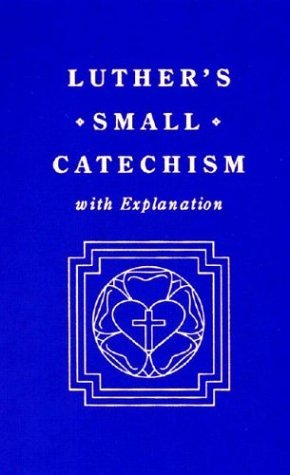catechism – a way to teach and to learn
Since last summer I have the chance to teach a church planting course called “Fresh-X Der Kurs”, which is a training course to coach and support ordained and lay leaders when founding communities and planting churches. The course concepts follows the model of the so-called Mission Shaped Ministry courses, designed by the Fresh-Expressions movement of the Anglican Church ten years ago. Main focus points in the curriculum are vision and call, gospel and culture, team roles and behaviour, spirituality for mission, discipleship, evangelism strategies, worship and the sacraments, handling opposition, setbacks and failure, strategic finance for mission and many more.
The ecumenical course in northern Germany attracts Catholics and Protestants from different backgrounds. This is why the learning concept of the German course model of “Fresh-X Der Kurs” added content to focus on confessional and denominational knowledge and different heritages.

The worship times, which are interwoven in the course also reflected this intention. One spiritual impulse for example focused on Lutheran liturgy and theology. Apart from songs and prayers out of the Lutheran tradition und liturgy we added some main texts, like Luther’s Catechism. Luther intended to summarize his thoughts and doctrine in a learning introduction. He chose to use the form of questions and answers to help people to memorize the subjects. This can be explained by a small example:
In the explanations of the small catechism about the 10 commandments, Luther enfolds his theology with a focus on God and Christology:
You shall have no other gods
- What does this mean?
- We should fear, love, and trust in God above all things.
- Who is the only true God?
- The only true God is the triune God: Father, Son, and Holy Spirit, three distinct persons in one divine being (the Holy Trinity).
- What does God forbid in the First Commandment?
- God forbids us to have other gods (idolatry).
- When do people have other gods? They have other gods. When they regard and worship any creature or thing as God. When they believe in a god who is not the triune God (see the Apostles’ Creed). When they fear, love, or trust in any person or thing as they should fear, love, and trust in God alone; When they join in the worship of one who is not the triune God.
- What does God require of us in the First Commandment?
- God requires that we fear, love, and trust in Him above all things. We love God above all things when we cling to Him alone as our God and gladly devote our lives to His service. We trust in God above all things when we commit our lives completely to His keeping and rely on Him for help in every need.
The smart didactical concept of the small catechism, in the example of the first commandment, transports learning content and was easy to be included in a spiritual impulse in the course, when connected with a bible verse of Acts.
Paul then stood up in the meeting of the Areopagus and said: “People of Athens! I see that in every way you are very religious. For as I walked around and looked carefully at your objects of worship, I even found an altar with this inscription: to an unknown god. So you are ignorant of the very thing you worship—and this is what I am going to proclaim to you.
Acts 17:22-23
This week I read Mark A. Noll’s “Jesus Christ and the life of the mind.”
It reminded me of the way, we designed and described the learning method, we used with confessional learning and Luther’s catechism.
Noll derives out of his Christology the drive to learn. The learning concept in his book is Christ-centered by source and by content. This means, he explains his call to learn with his Christology, but at the same time, he includes Christology in the learning concept itself. He combines insights from biblical surveys with text of classic confessional creeds out of church history. His “guide to serious learning” shall empower new layers for different learning experiences.
Even though my work and ministry context is not as critical towards intellectual thinking and scientific scholarly work, I can still sense, the intention of Noll’s book. Furthermore I asked myself about the intentions of my own learning and studying behaviors.
Where can you sense traces of Christ-centered learning concepts in your ministry and scholarly work, in learning and teaching?
Leave a Reply
You must be logged in to post a comment.